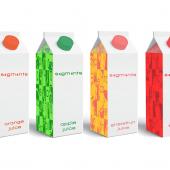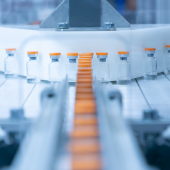Numerous ideas, a single objective
Ethics and packaging in 14 moves: over to … the Ambassadors
Building a world of values
The Packaging Ethical Charter Foundation is committed to promoting a communication approach that highlights the functions of packaging, acting as an “alternative voice” to the negative narrations of recent years.
It’s necessary, in fact, to make it clear to all stakeholders, first and foremost consumers, that today the packaging industry as a whole is moving on a number of fronts, implementing concrete actions and projects with the aim of creating shared value, starting from respect for people, the environment and the community. Below we set out, in a nutshell, the reflections of 14 Ambassadors of the Foundation who, with different approaches and emphases, deal with the ethical problems associated with packaging, its sustainability and the way to do business today*. They are ideas that we think are useful for addressing the moral and social problems that have emerged with the huge transformations that developments in scientific research and technology are generating in our society.
Starting precisely from the commitment and work that the Ambassadors are taking forward, in line with the 10 Values expressed by the Packaging Ethical Charter, a contemporary vision is outlined in which it is necessary to question practices that have been taken as a given, and to go back to establishing what is good and what is bad for an informed future.
* The accounts here summarised are set out in full on the Foundation’s website.
Stefano Lavorini
Let’s put things in their place

Over to... Enrico Barboglio Director Acimga
To provide information and communicate the value of packaging in the right way to consumers: these tasks figure among Acimga’s priorities.
Making it clear that the entire packaging supply chain, starting from the raw materials, to the suppliers of technologies to the end-of-life of the products, is moving with great determination with a view to sustainability is, in fact, a priority for the Association of Italian manufacturers of machinery for the graphic, paper and converting industry. Acimga’s attention, it goes without saying, is focused on the methods for coupling the materials making up the packaging and on the informative function of the printing on the packaging, essential to guarantee the consumer access to essential indications relating the product and the producer, as well as the correct use and enjoyment of the product. Acimga has also contributed to defining the Sustainability and Circular Economy Project of the Federazione Carta e Grafica (Paper and Graphic Federation) of which it forms part, which has been conceived to provide a concrete practical-organisational support to companies, providing necessary tools for environmental, social and economic reporting that comply with international standards and respond to the requirements both of customers and suppliers and of private and public funding entities.
From “heavy” assets to “thinking” assets

Over to... Tonino Dominici President of Boxmarche Spa
First among the first, Boxmarche began publishing its Social Report already in 2004, which over time has turned into the Living Company Report, a document that incorporates the financial statements, the social and environmental report and an analysis of Intellectual Capital. The company designs and produces boxes, cases, bags in boxes, display cabinets and displays in flat, corrugated and laminated cardboard.
Founded in 1969 by a family of farmers, it is characterised by the strong values of its territory: honesty, responsibility, balance and good relations in industrial activities. Equally, environmental, social and economic sustainability is viewed as “renewal in continuity”. In day-to-day practice, “thinking outside the box” means encouraging and enhancing individuals’ ability to generate ideas and innovation, paying attention to human fragility rather than investing in a compulsive manner in equipment and machines. On the other hand, we in Boxmarche are sincerely convinced that the company should be experienced as a common good and, accordingly, that its people are the most important asset. This has given rise to the motto: “the technology that we are most proud of goes home in the evening”.
The maximum with the minimum
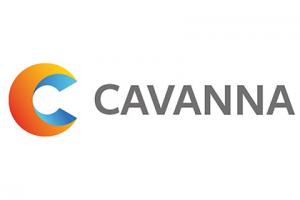
Over to... Riccardo Cavanna President of Cavanna Spa
Today, the flow pack - essential, light and “democratic” -, seems to perform the task of protecting products, with reduced environmental impact, in an optimal manner. As a manufacturer of automatic machines, Cavanna is committed to designing and developing technological solutions able to manage every type of product, with particular attention towards efficiency (savings) and sustainability (reduction of waste and packaging materials, use of eco-compatible materials). Understanding what is being done and what needs to be done is, however, a challenge which requires dialogue and collaboration in the supply chain. Producers of materials, converters, manufacturers of automatic machines, e-commerce operators… all, in fact, need to make the maximum use of skills and expertise in order to respond to consumer expectations.
If the intention is to pass to a real circular economy, then increasingly higher-performing and reliable machines, which also have a TCO in line with performances, are necessary; most of all, however, such machines must not waste material or product, thereby guaranteeing the consumer safety and savings. Taking as a given the ethical and social responsibility of the enterprise, entrepreneurs are called upon to work together to construct a future for the new generations.
Reconciling production needs and defence of the ecosystem
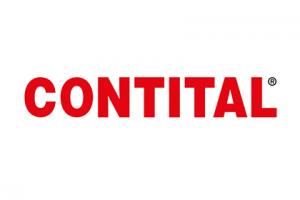
Over to... Ciro Sinagra R&D Senior Advisor of Contital Srl
Contital promotes and supports initiatives which, through the strategic role and use of packaging, aim to prevent and reduce food waste and to disseminate the adoption of solutions that protect foods from contamination. With the support of universities and specialised companies, it has launched a programme of life-cycle analyses (LCA) of aluminium products in order to evaluate the potential impacts of each of the phases, from the production process to distribution, to final consumption.
The company is currently working on the industrialisation of the process, which involves applying on aluminium, using coil coating technology, fillers in polymeric coatings which, as they are gradually released, perform an antioxidant and antibacterial action on the food, thereby increasing shelf-life.
A window into the future
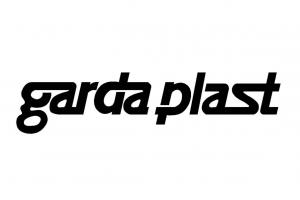
Over to... Massimo Cutolo CEO of Garda Plast Spa
Garda Plast produces PET preforms used for blow-moulding bottles for mineral water and soft drinks, as well as detergent bottles: a mono-material semi-finished product that takes advantage of one of the most efficient consortium systems for recovery and recycling. The company puts social responsibility at the centre of its business activities and engages EcoVadis® to monitor and improve environmental and social practices. For Garda Plast, working well means putting people, whether employees or customers, first, that is, producing wealth to redistribute it in some way to all stakeholders.
The challenge, therefore, is to do business in a responsible way, that is, considering all the aspects of its activity that have an impact, aware that our planet is a closed ecosystem, in which an unlimited consumption of resources is inconceivable. Looking at today, able to draw on its experience in the use of rPET, the company is convinced that it is necessary to concentrate on the end-of-life of a product, to close the circle and pass on to a system of circular recovery and recycling in which a bottle goes back to being a bottle.
Knowledge and science promoting sustainability

Over to... Carolina Gerosa CFO Gerosa Group
Sustainability and innovation are today key words in Gerosa Group’s corporate policy, in a business and ethical vision shared also with its employees. For 88 years it has been printing and laminating the most diverse materials to create flexible packaging for very varied application needs, approaching the question of sustainability in a scientific way. Gerosa Group has made significant investments in the last few years to improve its portfolio of sustainable solutions and has identified 5 areas of development: reduction of thicknesses, materials with recycled plastic content, and mono-material, compostable and paper-based solutions.
In 2018 it drew up its first certified sustainability report based on the GRI (Global Reporting Initiative) international standards, considered as a fundamental tool for presenting its values with respect to all its stakeholders in a concrete and transparent way. They are values that are expressed in the adoption of a Code of Ethics in which respect for people, society and the environment, over and above any necessary compliance with laws and regulations, is reiterated.
Environmental and industrial policies

Over to... Alberto Palaveri President of Giflex
Giflex, the national association of producers of flexible packaging solutions, is working on developing opportunities for dialogue with all institutional, national and international stakeholders, with the objective of aligning environmental and industrial policies. Drawing on its expertise in the environmental sustainability of products, it offers its services to define a shared protocol on the basis of which to carry out LCA on flexible packaging: a scientific method validated by a third-party body that helps to clarify matters. Reasoning from a supply chain perspective, Giflex has initiated a reflection on the identity of flexible packaging and on the values of which it is a vehicle, with a view to improving recyclability.
On the other hand, there is already today no shortage of high-performance sustainable packaging. To further improve the efficiency of the material/machine system, however, it has become essential to work in synergy with Ucima, the association of Italian Manufacturers of Automatic Packing and Packaging Machinery and Acimga, the association of Italian manufacturers of machinery for the graphic, converting, and paper industry. Giflex is also convinced that attention towards the environment must go hand-in-hand with attention towards the social aspect. This means, among other things, making companies attractive and inclusive, putting people at the centre.
Do more, do better

Over to... Anna Paola Cavanna CEO Laminati Cavanna Spa
A historic company from the province of Piacenza, Laminati Cavanna is a subcontractor partner of important national and international converters, a leader in coupling, laminating, lacquering and coil cutting in the flexible packaging sector. True to its nature as a dynamic business, with extensive expertise in materials and adhesives, it stands out for the concrete actions and projects in progress aimed at creating shared value, starting from respect for people, the environment and for the community in which it operates.
It was the first company to become Ambassador of the Packaging Ethical Charter Foundation, undertaking to act according to the ten points of the Ethical Charter, to disseminate it appropriately and to propose initiatives to promote its contents. Consistent with its declarations, it has set up its own Charter of Values and a Code of Ethics and Conduct, which defines and embodies the principles that represent the identity and raison d’être of the company.
Plastic: an infinite resurce

Over to... Giovanni Belia Sales Director of Lucy Plast Spa
Lucy Plast deals with collection, recycling, regeneration in granules and injection moulding, using secondary raw materials traced at the origin, coming from industrial and post-consumer sources. Its declared objectives: to reduce the quantity of raw material for packaging, use exclusively recycled polyolefin-based mono-materials (PE and PP), optimise transport and storage, and incentivize services for the reuse of packaging produced to last. Technological development is essential for greater sustainability - environmental and economic - of process, products and services. Proof of this is the new packaging for the fish sector, composed of the assembly of 2 parts: an internal tray in certified PP for food contact, an external box in recycled PP, with 25% calcium carbonate from shellfish shells, designed to last and to be reused over time.
The services provided include that of recovering customers’ industrial packaging from their final recipients throughout Europe. This is a good example of the circular economy, but also a means to emphasise the value of plastic, demonstrating that when plastic is well-managed it’s not an enemy of the environment as is often alleged, but rather, the opposite.
Business strategies in the name of sustainability

Over to... Marta Schiraldi Safety, Health, Environment and Sustainability Head of the Nestlé Italia Group
Besides responding to ethical issues linked to environmental themes, the Nestlé Italia Group has adopted a sustainable packaging strategy for some years, which is based on 4 pillars - research, reduction, reuse and recycling - as well as the promotion of collaborations with entities outside the company and the raising of the awareness of stakeholders and consumers.
For the development and experimentation of new innovative packaging solutions, the multinational has founded in Switzerland the Nestlé Institute of Packaging Sciences, the first of its kind in the food sector. The goal is to obtain, through eco-design, an increasingly functional and sustainable but also “responsible” and “balanced” packaging (in line with the Ethics Charter), maintaining a high level of food safety as a cornerstone. Collaboration and the sharing of knowledge and skills remains a fundamental element of Nestlé’s strategy.
For a cleaner world

Over to... Andrea Ghu, Sales manager Poplast Srl
Specialised in flexographic and rotogravure printing, in lamination and cutting processes, the Poplast Group invests in the research of new flexible packaging solutions with a lower environmental impact, giving projects maximum transparency. Ethical conduct, protection of the environment and support of communities are key business aspects of the Group, today and tomorrow. One rule prevails in the companies over all others, that is, to avoid any form of conscious greenwashing, the reason for which all our new proposals are based on scientific data and are evaluated and certified by third parties.
The problem increasingly perceived also in academic fields, is that many LCAs are “incomplete” and contradictory, raising doubts about their validity. To combine ecology and economy, Poplast follows the path of reducing thicknesses and the use of recycled material. It has also, moreover, developed a compostable thermoformable film for trays made with polymers of fossil origin which, compared to products that use renewable sources, have a more acceptable cost and guarantee constant superior quality.
Technology and safety for sustainability

Over to... Cristian Furiosi Ceo of Sapici Spa
The core business of Sapici (Sun Chemical Group) is linked to the production of high-performance polyurethane polymers for coatings, flexible packaging and industrial applications. Its essential values include the continuous improvement of the quality of products and services, consistency with elevated production standards and compliance with the most stringent local, national and international regulations, particularly in terms of attention to individual health and safety and the safeguarding of environmental sustainability. In this regard, it merits recognition as a pioneer in the development of polyurethane isocyanates with a very low content of free monomers, able to guarantee safety for operators and consumers. The foresight of this technology is becoming evident today with the recent European restrictions introduced regarding the manipulation of products containing isocyanates.
Focusing on the sustainability of flexible packaging, among the more recent developments, in partnership with Sun Chemical, we can mention: adhesive systems/compostable certified ink, to be used in combination with compostable substrates available on the market; adhesives and coatings with gas barrier characteristics, designed for producing mono-material multi-layer structures able to facilitate recycling, but at the same time, guarantee adequate protection and shelf-life of the products, thereby avoiding food waste.
Sustainability as ethics

Over to... Neni Rossini President of SIT Group Spa
For SIT Group, being a leader in the flexible packaging sector means, first and foremost, taking very seriously the problem of environmental impact and acting with determination to find solutions increasingly in line with market demands. In the same way, the sense of responsibility towards future generations has led the company to offer concrete support for young people and special protection for the most disadvantaged, as well as to promote at various levels the development of a more ethical economic culture. An active enterprise in the community in which it operates, it has engaged the Brazilian street artist Eduardo Kobra to create a huge mural covering the entire facade of the San Marino site: a gift to the company, but also an opportunity to organize an equipped green area freely usable by the community. The raison d’être of this approach is, moreover, clear, and can be summarised as follows: “if you have two coins, use one to buy bread and the other to buy a flower. The bread allows you to live; the flower will give you a reason to live”.
Informed improvement

Over to... Mauro Solinas Ceo of ALB Spa Acqua Smeraldina
The quality of Smeraldina water is due most of all to the uncontaminated territory from which it originates, Tempio Pausania, in Sardinia. Respect for the environment is, therefore, a priority for ALB and, also for this reason, the company supports awareness projects aimed, in particular, at young people and schools. It is also involved in numerous initiatives to promote the recycling of PET bottles and paper-based poly-laminate containers, as well as the use of returnable bottles. One example of the attention that Smeraldina pays to packaging is the new special bottle with the system called “Sempre Frizzante” (Always Sparkling), designed to guarantee a longer life of the carbonated water. No less care is taken in the production process: the water is bottled directly at the source, in a controlled contamination environment.
The underlying conviction is that the time has come to rethink the business model in order to develop a sustainable tomorrow in terms of production, distribution and consumption. ALB is making these changes, planting, for example, 56,000 trees and becoming in this way, “Carbon positive”, but also transforming itself, by 2024, into a Benefit corporation, introducing a dual object into its articles of association.













